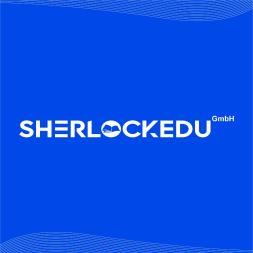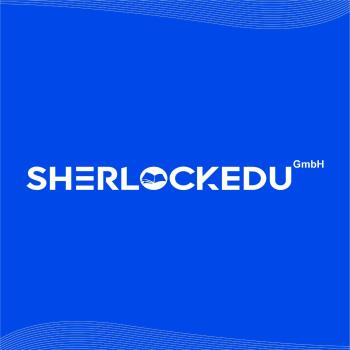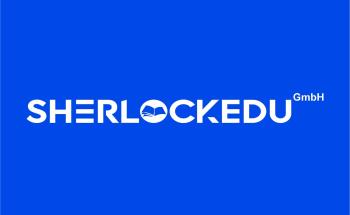
Third-party on-site course
INNOVATIVE TEACHING METHODS IN MATHS in PRE-PRIMARY SCHOOLS-BERLIN
Remember that young children learn best through play and exploration. By incorporating these innovative teaching methods, you can create a positive and engaging learning environment for pre-primary students in mathematics.
08.05.2024
Multiple locations
Description
- DAY 1
- Definition and importance of mathematics in early childhood
- Principles and Standards in Mathematics Education
- Techniques and Methods for Teaching Math Concepts and Scientific Thinking Skills
- DAY 2
- Mathematics Programs Used in Early Childhood
- Building Blocks
- Big Maths For Little Kids
- Pre-K Mathematics
- DAY 3
- Mathematics Programs Used in Early Childhood
- GEMS (Great Explanation In Math And Science)
- STEM
- DAY 4
- Mathematics Education and Play
- Matching, Compare, Classify, Sort, Pattern Creation
- Numbers and counting, teaching stages of the concept of numbers
- Creating a Chart
- DAY 5
- Planning and Implementing Math Activities
- Evaluation and Certificate Ceremony
Learning objectives
- Enhanced Teaching Skills:
- Educators gain a deeper understanding of innovative teaching strategies and methods specific to mathematics.
- Teachers develop skills to design and implement engaging lessons that cater to diverse learning styles.
- Increased Student Engagement:
- Innovative methods often make math more interesting and enjoyable for students.
- Students become more actively involved in the learning process, leading to increased motivation and participation.
- Improved Student Performance:
- As engagement increases, there is a potential for improved academic performance in mathematics.
- Students may develop a stronger conceptual understanding of mathematical principles through hands-on and interactive learning experiences.
- Critical Thinking and Problem-Solving Skills:
- Innovative teaching methods often focus on developing critical thinking and problem-solving skills.
- Students learn to approach mathematical challenges with a creative and analytical mindset.
- Application of Mathematical Concepts to Real Life:
- Courses on innovative teaching methods often emphasize connecting mathematical concepts to real-world scenarios.
- Students develop an appreciation for the practical applications of math in everyday life.
- Positive Attitude Towards Mathematics:
- Through engaging and enjoyable learning experiences, students may develop a positive attitude towards mathematics.
- Reduced anxiety and increased confidence can contribute to a more favorable perception of the subject.
- Increased Collaboration and Interaction:
- Teachers learn methods that promote collaborative learning environments.
- Students engage in group activities and discussions, fostering a sense of community and teamwork.
Methodology & assessment
Methodology
Pedagogical Approaches: Teacher training courses typically employ various pedagogical approaches to model effective teaching practices. This may include lectures, interactive seminars, workshops, and hands-on teaching experiences.
Practical Teaching Experience: Practical teaching experience is a fundamental component of teacher training. Participants often have opportunities to observe experienced educators and engage in actual teaching in classrooms or educational settings. Feedback and guidance from mentors are essential during these experiences.
Collaborative Learning: Collaborative learning is often encouraged in teacher training courses. Participants may work in groups to develop teaching materials, lesson plans, and teaching strategies. Collaborative projects can promote the exchange of ideas and best practices.
Reflective Practice: Reflective practice is a crucial aspect of teacher training. Participants are encouraged to reflect on their teaching experiences, analyze their teaching methods, and consider how to improve their practice. Journals, written reflections, and discussions are common tools for fostering reflective practice.
Assessment
Written Assignments: Teacher training courses often include written assignments, such as research papers, case studies, or essays, on topics related to education and teaching methods.
Examinations: Some teacher training courses may include written examinations to assess participants' understanding of pedagogical theories, educational psychology, and other relevant subjects.
Professionalism and Communication: Assessment may also consider participants' professionalism, communication skills, and ability to collaborate with colleagues, parents, and students.
Feedback and Self-Assessment: Regular feedback from mentors and self-assessment are crucial components of teacher training assessment. Participants are encouraged to use feedback to improve their teaching skills
Pedagogical Approaches: Teacher training courses typically employ various pedagogical approaches to model effective teaching practices. This may include lectures, interactive seminars, workshops, and hands-on teaching experiences.
Practical Teaching Experience: Practical teaching experience is a fundamental component of teacher training. Participants often have opportunities to observe experienced educators and engage in actual teaching in classrooms or educational settings. Feedback and guidance from mentors are essential during these experiences.
Collaborative Learning: Collaborative learning is often encouraged in teacher training courses. Participants may work in groups to develop teaching materials, lesson plans, and teaching strategies. Collaborative projects can promote the exchange of ideas and best practices.
Reflective Practice: Reflective practice is a crucial aspect of teacher training. Participants are encouraged to reflect on their teaching experiences, analyze their teaching methods, and consider how to improve their practice. Journals, written reflections, and discussions are common tools for fostering reflective practice.
Assessment
Written Assignments: Teacher training courses often include written assignments, such as research papers, case studies, or essays, on topics related to education and teaching methods.
Examinations: Some teacher training courses may include written examinations to assess participants' understanding of pedagogical theories, educational psychology, and other relevant subjects.
Professionalism and Communication: Assessment may also consider participants' professionalism, communication skills, and ability to collaborate with colleagues, parents, and students.
Feedback and Self-Assessment: Regular feedback from mentors and self-assessment are crucial components of teacher training assessment. Participants are encouraged to use feedback to improve their teaching skills
Certification details
- Completion Certificate: Upon successfully completing a teacher training course, you will typically receive a completion certificate or diploma from the training provider or institution. This certificate acknowledges your participation and successful completion of the training.
- Course Duration: The duration of teacher training courses can vary widely. Some may be short-term workshops or seminars, while others may be more comprehensive and span several weeks or months. The certificate may indicate the total number of hours or credits completed.
- Content and Curriculum: The certificate should outline the key topics, content, and skills covered during the training. This information helps future employers or educational institutions understand the scope of your training.
- Credits or Continuing Education Units (CEUs): In some cases, teacher training courses may offer academic credits or Continuing Education Units (CEUs). These credits can be valuable for professional development and may be recognized by educational authorities or institutions.
- Language of Instruction: If the teacher training course is conducted in a language other than your native language, the certificate may indicate your language proficiency level or the language in which the training was delivered.
- Evaluation and Assessment: Teacher training courses often involve assessments or evaluations of your performance. The certificate may include information about your performance in the training, such as grades or evaluations.
- Recognition and Accreditation: Ensure that the teacher training course and the institution providing it are recognized and accredited by relevant educational authorities or professional bodies. This can affect the credibility and transferability of your certificate.
- Pedagogical Practices: If the training includes practical teaching experience or classroom observations, the certificate may highlight your proficiency in specific pedagogical practices or teaching methodologies.
Pricing, packages and other information
-
Price:400Euro
Additional information
-
Language:English
-
Target audience ISCED:Early childhood education (ISCED 0)
-
Target audience type:Teacher
-
Learning time:25 hours or more
Past sessions
More courses by this organiser

On-site
DIGITAL HORIZONS - EQUIPPING EDUCATORS FOR TECHNOLOGY-INTEGRATED LEARNING-ANTALYA
Next upcoming session
-
Multiple locations
Organised by

On-site
DIGITAL HORIZONS - EQUIPPING EDUCATORS FOR TECHNOLOGY-INTEGRATED LEARNING-ROME
Next upcoming session
-
Multiple locations
Organised by

On-site
CREATIVE THINKING-Problem Solving-Managing Classrooms and Opening Minds for 21st Century-ROME
Next upcoming session
-
Multiple locations
Organised by

